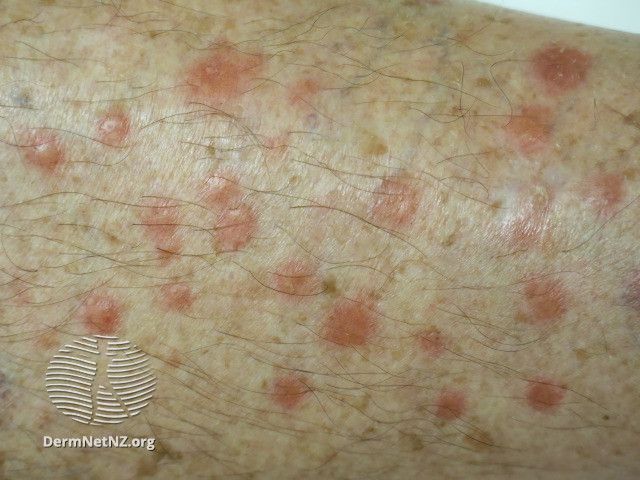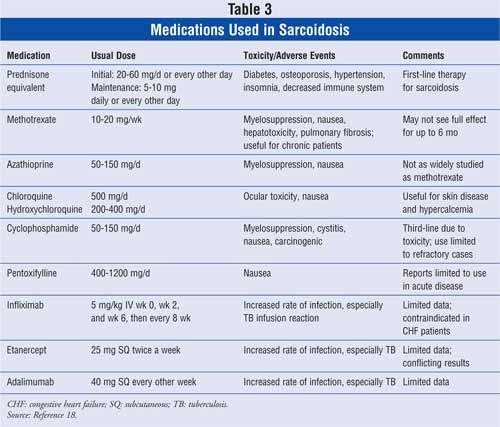
If you have been diagnosed with sarcoidosis, it is imperative that you receive the best treatment possible. This will help you improve your quality of life and lessen the amount of stress you are experiencing due to your condition.
Sarcoidosis usually responds well to the intervention of a multidisciplinary group of medical practitioners, including physicians, surgeons, physical therapists, nurses, pharmacists, and others. Because the condition can affect such a wide variety of organs, you can usually work with different health care specialists who specialize in the specific treatment of your particular organs, such as the heart, lung, brain, kidneys, and liver. However, a specialized team will be better able to determine what treatment is appropriate for your particular case.
People with sarcoidosis usually are in good condition until they experience an accident or suffer from a chronic complication of their condition. If you do not have symptoms, it is generally impossible to know whether you actually have sarcoidosis. As long as you have a low blood count or an abnormally low concentration of serum albumin, it can be difficult to accurately diagnose sarcoidosis. Once symptoms begin to emerge, however, doctors can conduct tests to determine the severity and cause of your condition. In some cases, doctors can treat the symptoms themselves, while in other cases they may refer you to a specialist for more effective treatment options.
If your condition is mild, or perhaps if you have multiple organ failure due to the condition, the best treatment option may be surgery. Your doctor may recommend an operation known as a lobectomy, which involves removing a portion of the sarcoidoplastoma. Another option would be a lymph node dissection, in which the surgeon removes part of the tissue surrounding the lymph nodes in order to diagnose the extent of your condition.
If your condition is severe, however, your doctor may recommend surgical measures in conjunction with medications. Chemotherapy drugs such as isocyanate is one common treatment that can be used for sarcoidosis. In some patients, the drug may reduce the amount of isocyanate in the blood stream, while other drugs may eliminate the problem completely. Surgery, in conjunction with chemotherapy, may also be an option if the disease has spread to a larger organ like the pancreas or kidneys.
Sometimes, your doctor may offer alternative treatments that do not involve surgery or medication. For example, radiation therapy may help reduce the severity of your symptoms, although it can lead to side effects like nausea and vomiting, which may make your life more difficult. If your condition worsens, you may be given chemotherapy. You should talk to your doctor about the appropriate course of treatment for your specific condition.

If you have a history of other health conditions such as tuberculosis or HIV, your doctor may be able to recommend other treatment options for sarcoidosis. In these cases, your doctor may be able to suggest medications or tests that can be used to diagnose your condition and treat it before any complications arise.
If you develop sarcoidosis, be sure to tell your doctor about any other health problems, such as allergies or high cholesterol, that could make your condition worse. Smoking is a leading risk factor for the development of sarcoidosis. Your doctor may also advise you on other treatment options, including anti-TB drugs or anti-inflammatory drugs, which may help relieve your symptoms.
If your doctor does not recommend surgery or other treatment options for you, be sure to discuss this with him or her and discuss the pros and cons of surgery and possible treatment options available. Your doctor may recommend alternative treatments that you may want to try or refer you to a doctor who specializes in sarcoidosis.
You should also explore different treatment options and find a provider you feel comfortable with, especially if you are experiencing any pain or side effects from one or more medications your doctor has prescribed. While the side effects may cause discomfort, they will likely go away as treatment continues. It is important to discuss these issues with your doctor before making an appointment to take one of the medications your doctor recommends.
While not life-threatening, sarcoidosis is something you should keep in mind as you look for treatment options for other conditions. Be sure to talk to your doctor and ask plenty of questions about the various treatments for your condition. Feel free to ask to speak to a doctor at somosmass99.com.mx
about any new treatments that may be available to treat your particular situation.